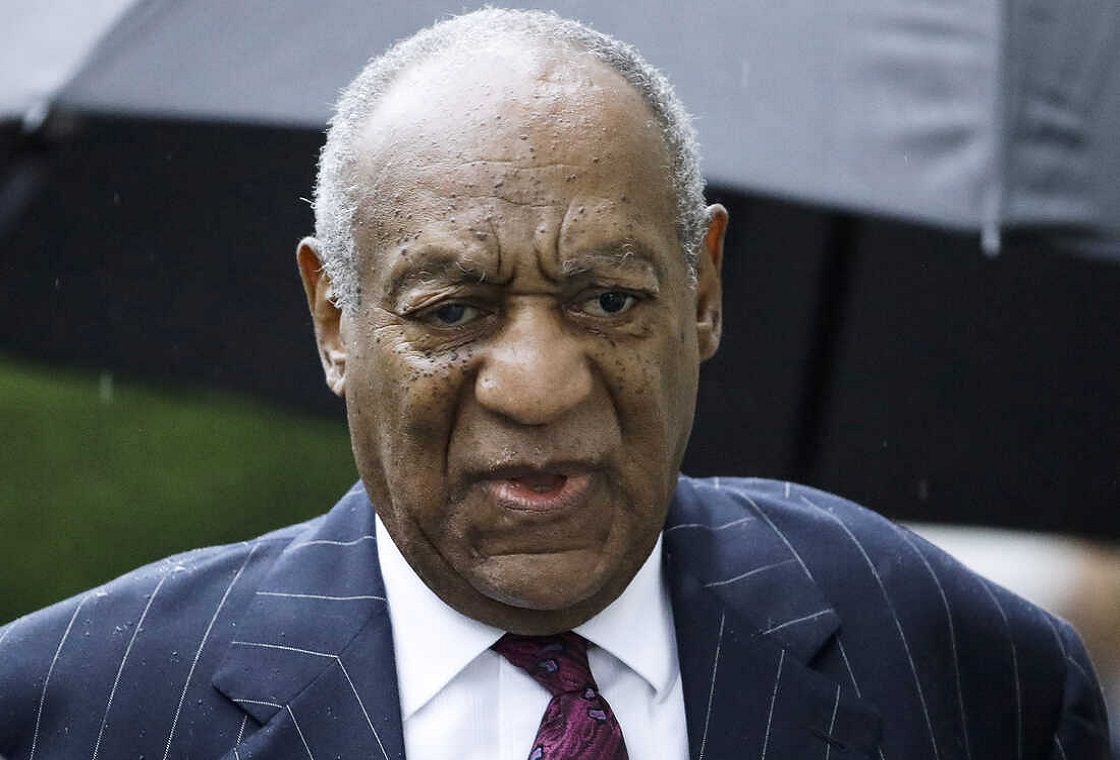Bill Cosby, once considered one of America’s most beloved and influential comedians, has left an indelible mark on the entertainment industry. For decades, he captivated audiences with his humor, charisma, and wholesome family-oriented television shows, making him a household name and an icon in popular culture. However, beneath the façade of fame and success, lurked a darker truth that would eventually shatter his public image and lead to his downfall.
The Rise to Stardom: A Journey of Success
William Henry Cosby Jr., born on July 12, 1937, in Philadelphia, Pennsylvania, began his journey into the world of entertainment in the early 1960s. He entered the stand-up comedy circuit, gaining popularity for his observational humor and relatable storytelling.
His big break came in 1965 when he appeared on “The Tonight Show Starring Johnny Carson,” propelling him to national fame. This success led to various appearances on TV shows and ultimately the creation of his landmark sitcom, “The Cosby Show,” which aired from 1984 to 1992.
“The Cosby Show” was groundbreaking in its portrayal of an affluent African-American family, challenging stereotypes and becoming a cultural phenomenon. The show’s universal appeal transcended racial boundaries, making Cosby a role model and a positive influence for many. Moreover, his commitment to education and philanthropy earned him praise and respect from communities nationwide.
A Comedic Legacy Undermined: Allegations and Accusations
For years, Bill Cosby enjoyed an untarnished reputation, but in 2005, the first public accusation of sexual assault emerged when Andrea Constand, a former Temple University employee, alleged that Cosby had drugged and assaulted her. The case was settled out of court, and the details remained relatively obscure.
However, a decade later, a resurgence of allegations emerged when numerous women came forward with similar stories of being drugged and sexually assaulted by Cosby. Their accounts painted a distressing and consistent pattern of predatory behavior spanning several decades. The sheer number of accusers and the similarities in their experiences were difficult to ignore, and public opinion began to shift.
As more victims spoke out, Cosby’s carefully constructed public image began to crumble. Longtime fans were shocked and disheartened, grappling with the stark contrast between the beloved TV dad they knew and the alleged sexual predator presented in the media. The controversy led to the cancellation of planned projects, the removal of his iconic statue from Disney World, and the revocation of honorary degrees from multiple institutions.
Legal Battles and Criminal Conviction
The allegations against Cosby ignited a firestorm of controversy and outrage. In response, some jurisdictions reopened investigations into the allegations, while others sought to prosecute the comedian. In 2017, Andrea Constand’s case was reopened, and Cosby faced a criminal trial for three counts of aggravated indecent assault.
The trial was highly publicized, with media scrutiny and public interest reaching a fever pitch. Cosby’s defense team maintained his innocence, arguing that any sexual encounters were consensual and that the encounters took place within the statute of limitations. On April 26, 2018, Cosby was found guilty on all three counts, facing the possibility of up to ten years in prison for each count.
The conviction marked a significant turning point in the #MeToo movement, signaling that even powerful figures in the entertainment industry would be held accountable for their alleged actions. For many, the verdict brought a sense of justice and validation to the women who had bravely spoken out against Cosby.
Impact on Hollywood and the #MeToo Movement
Bill Cosby’s downfall sent shockwaves throughout Hollywood and had a profound impact on the #MeToo movement. The movement, which gained momentum in 2017, aimed to raise awareness about sexual harassment and assault while demanding accountability for perpetrators, regardless of their status or fame. Cosby’s conviction served as a stark reminder that no one is above the law and that victims’ voices should be heard and respected.
In the aftermath of Cosby’s conviction, other high-profile figures faced similar allegations and legal consequences, including Harvey Weinstein and Kevin Spacey. The entertainment industry underwent a significant shift, with an increased focus on addressing issues of misconduct, abuse of power, and toxic workplace cultures.
Moreover, the Cosby case prompted discussions about the statute of limitations for sexual assault crimes and the importance of supporting survivors who may come forward years after the incidents occurred. State legislatures reevaluated and revised statutes of limitations to allow more time for victims to seek justice.
Controversial Reactions and Divided Opinions
Despite the overwhelming evidence presented during the trial, Cosby’s conviction remained a polarizing topic. Some staunch supporters continued to believe in his innocence, arguing that the allegations were part of a conspiracy to tarnish his reputation. Others criticized the legal proceedings, suggesting that racial bias played a role in the outcome.
Conversely, many celebrated the conviction as a crucial step towards justice for survivors of sexual assault. It represented a landmark moment in the fight against powerful figures who had seemingly evaded accountability for their actions for far too long.
Legacy Tarnished: Reckoning with the Past
Bill Cosby’s legacy will forever be marred by the allegations and the subsequent conviction. The once-admired entertainer is now remembered not only for his contributions to comedy and television but also for the allegations of sexual misconduct that haunt his name.
The fallout from the accusations has been far-reaching, affecting not only Cosby himself but also the industry and his colleagues. For many, it is a lesson in the danger of placing individuals on pedestals without critically examining their actions and behavior.
Conclusion
Bill Cosby’s journey from a revered comedian and family man to a convicted sex offender is a cautionary tale. It highlights the importance of holding individuals accountable for their actions, regardless of their status or public image. The Cosby case also sparked a broader cultural conversation about sexual misconduct, consent, and the need for structural changes in how society addresses these issues.
As society moves forward, it is essential to listen to and support survivors, enact laws that protect them, and create an environment where victims feel safe coming forward. Only by addressing these issues head-on can we hope to prevent such abuse of power and promote a culture of respect and empathy for all.


